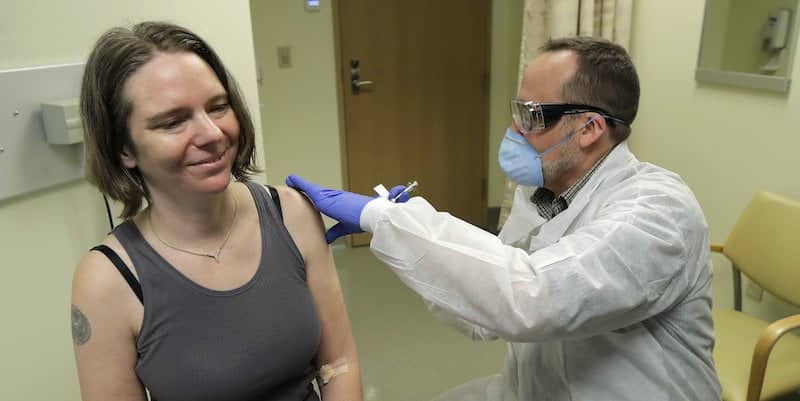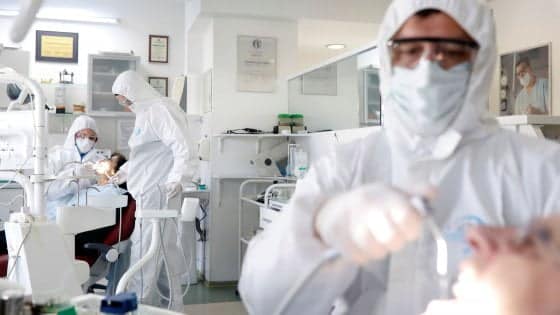Numerous research teams around the world are rushing to develop a coronavirus vaccine as the disease continues to spread globally. Despite the fact that the world's brightest minds are involved in the case, however, a vaccine is still months away, potentially even years if there was no such commitment.
The coronavirus outbreak, known as COVID-19, has now spread to more than 150 countries with more than 180.000 confirmed cases. These huge numbers make it one of the worst pandemics to ever appear on the planet. We have no natural immunity and a limited understanding of how the virus survives. For this numerous vaccine projects against coronavirus are under construction.
How a vaccine works
Vaccines inject weakened or killed portions of the virus so that the body can learn the best way to fight it without the virus taking control of the body.
The idea is that once the disease or virus returns, the body will have learned what to do and will be able to fight it off quickly. This is why many deadly and infectious diseases, such as polio and smallpox, have been virtually wiped out from the world. But some time goes into producing a vaccine before it is distributed en masse.
Professor Ian henderson, a microbiology expert at the University of Queensland, explained that there are a number of aspects to take into consideration, such as how the vaccine affects different age groups and whether it can be produced in large quantities.
“An effective vaccine must strengthen immunity to the infectious agent and must sustain protection for long periods. The vaccine must protect the groups of people most at risk such as the elderly." said Professor Henderson.
But care must be taken that the potential vaccine causes the right immune responses rather than producing an excessive and harmful response. A real “immunopathology”.
Finally, vaccine antigens must be able to be produced in large quantities.
Even in the case of seasonal flu, which returns each year with a modified strain, a vaccine takes months to produce.
“It is produced in millions of doses each year using an established process,” said Professor Henderson. “However, even with production routes and safety and efficacy procedures already established, it takes 6 months to produce.”
There are already 15 potential vaccines against coronavirus, but…
…many of them will take at least six months before they are ready for human testing. Even the one that has just started testing on humans (in the photo the volunteer who was administered it) will have to go into production if successful. It will be necessary to procure all the necessary resources and produce it for the people affected, who at that point could number millions. All of this takes time.

Something ready?
For COVID-19 which is part of the same family of MERS and SARS, however, scientists are examining existing vaccines of previously known viruses and seeing if they can be applied to this virus.
“Given the genetic relatedness of the viruses, there may be some cross-protection from the use of a SARS/MERS vaccine while awaiting the COVID-19 vaccine”, says Professor Henderson. “However, this approach would require careful monitoring of small groups of vaccinated individuals in areas where there is active transmission of the current virus.”
In other words, we should "send" healthy people around to see whether or not they get infected after receiving this experimental vaccine.
There are four "ready-made" vaccines.
Professor Henderson said there are four potential SARS / MERS vaccines undergoing clinical trials. So far they have been found safe, but their effectiveness was not complete at this stage.
So for now, we don't rely on a coronavirus vaccine. We rely on ourselves.
For now, it's just a battle of nerves, with focused measures on flattening the infection curve. Whether it's from an antiviral, whether it's from "natural death" or whether it's after a coronavirus vaccine, when this pandemic finally passes, hopefully there will be a nice reminder. A nice reminder, yes, for future governments: to always be ready for the omnipresent threat of unknown infectious diseases.
“This epidemic will eventually peter out, and as history shows, people's memory of the scale and difficulties posed by the current epidemic will gradually fade.”, said Professor Henderson.
“However, we must not forget the lessons learned from this crisis. Lessons learned now will provide a roadmap for responding to future outbreaks."


